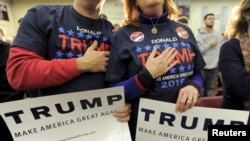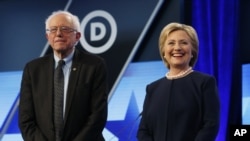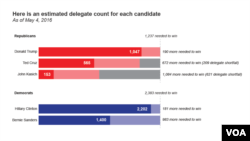After largely self-funding his run to the U.S. Republican presidential nomination, billionaire Donald Trump is starting efforts to raise money for his race against the likely Democratic nominee, former Secretary of State Hillary Clinton.
Trump said he contributed about $44 million to his monthslong campaign to capture the Republican nomination, while collecting another $12 million in relatively small donations from supporters.
But Thursday, he named a campaign finance chief, Steven Mnuchin, chief of a private investment firm, to oversee a national fundraising effort for what could be a billion-dollar campaign.
Trump often bragged to his supporters that he was the only 2016 presidential candidate who was self-funding, even if it was somewhat of an exaggerated claim because he also accepted donations.
Now he has acknowledged that he would have to sell some of his extensive real estate holdings, something he said he does not necessarily want to do, to muster the hundreds of millions of dollars needed for the national campaign against Clinton.
Even so, Trump said in a statement that he would be "putting up substantial money toward the general election."
Contributions
Numerous wealthy individuals who normally contribute to Republican presidential candidates have been slow to embrace Trump; nearly all of them have been supporting contenders whom Trump defeated.
Trump is a political novice who captured the hearts and votes of a sizable portion of the Republican electorate in state nominating contests, but has received tepid support from establishment party figures.
Trump, a brash, onetime television reality-show host, said he is putting together a committee to help him choose his vice presidential running mate.
Clinton, who has not clinched the Democratic nomination, significantly leads Vermont Senator Bernie Sanders, her lone challenger, in the number of delegates.
Sanders has said he has no plans to quit before the final primary votes have been cast in June.
He would need to win a huge majority of the vote in the remaining states in order to catch Clinton, who leads him by about 300 pledged delegates to the party's national nominating convention and has hundreds more superdelegates, mostly party officials, pledging to support her.
A number of polls show Clinton favored to beat Trump if the election were held now.







